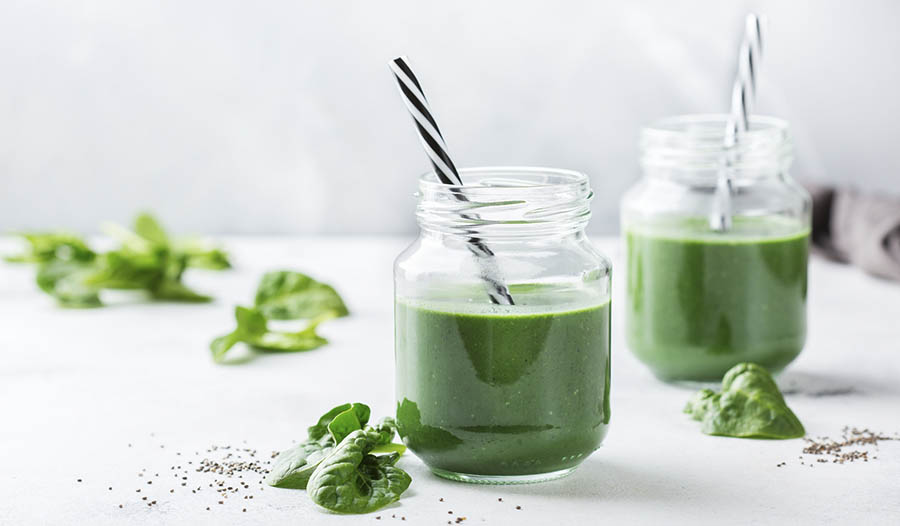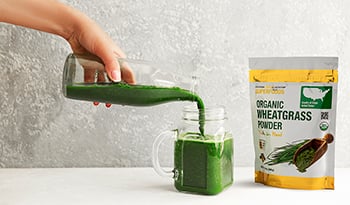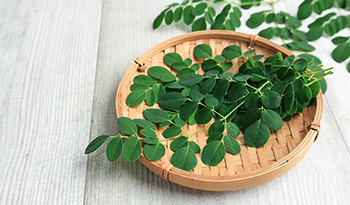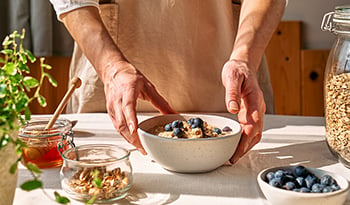5 alternativa kavi za brzo povećanje energije

Ključni zaključci
- Ljudi traže alternative kavi kako bi izbjegli podrhtavanje, energetske padove ili višak kalorija povezanih s kavom.
- Opcije bez kofeina uključuju kavu od korijena cikorije, čaj od ginsenga i kombuču, koji mogu podržati energiju pomažući u stabilizaciji šećera u krvi ili smanjenju umora.
- Izbori s niskim sadržajem kofeina poput matcha čaja i kave od gljiva daju poticaj kombiniranjem kofeina s drugim korisnim spojevima poput L-teanina ili ljekovitih gljiva.
Zamijenite jutarnju kavu zdravom zamjenom
Iako se kava stoljećima koristi kao klasični pick-me-up, mnogi ljudi smatraju da ih previše kofeina čini nervoznim ili ih ostavlja do kraja dana s padom energije. Neki se možda bore s ovisnošću o kofeinu i žele smanjiti. Drugi pojedinci možda jednostavno ne uživaju u okusu kave bez vrhnja ili šećera i traže energiju koju kofein može pružiti bez dodatnih kalorija.
Kada traže zdrave zamjene za kavu, mnogi ljudi čak i ne znaju što piti umjesto kave radi energije. Srećom, razne alternative kave mogu pružiti brzi nalet energije kada se osjećate umorno. Ove alternative kreću se od biljnih čajeva do kava pojačanih ljekovitim gljivama.
Evo 5 alternativa kavi za brzo povećanje energije.
1. Kava od korijena cikorije
Kava od korijena cikorije desetljećima je glavna namirnica na mjestima poput New Orleansa, Louisiana, u Sjedinjenim Državama. Napitak s blagim okusom orašastih plodova često se koristi kao alternativa kavi za one koji su osjetljivi na kofein ili uživaju u okusu.
Unatoč imenu, kava s korijenom cikorije nije prava kava. Napravljen je od mljevenog i pečenog korijena biljke cikorije, koja je dio obitelji maslačka.
Dok korijen cikorije prirodno ne sadrži kofein, istraživanja pokazuju da je cikorija puna zdravih vitamina i hranjivih tvari poput kalija, željeza i beta-karotena, koji je preteča vitamina A.
Cikorija također ima veliku količinu prebiotičkih vlakana inulina. Inulin je neprobavljivo vlakno koje korisne bakterije koriste kao izvor goriva u ljudskim crijevima i može igrati ulogu u mršavljenju. Na primjer, jedan sustavni pregled i metaanaliza otkrili su da je cikorija pomogla značajno smanjiti tjelesnu težinu, indeks tjelesne mase (BMI) i opseg struka.
Cikorija također može pomoći u stabilizaciji razine šećera u krvi, što može povećati razinu energije i održati energiju stabilnom tijekom dana. Jedna randomizirana, dvostruko slijepa, placebom kontrolirana studija koja je uključivala 47 zdravih odraslih osoba otkrila je da napitak od korijena cikorije može smanjiti razinu hemoglobina A1c. Studija je također otkrila da se adiponektin, protuupalni hormon koji pomaže u podršci zdrave razine inzulina, povećao. Zdrave razine adiponektina mogu pomoći u poboljšanju umora, pogotovo zato što su istraživanja povezala niske razine adiponektina s umorom kod starijih odraslih osoba.
2. Matcha čaj
Matcha čaj je vrsta zelenog čaja podrijetlom iz Kine koji je mljeven u fini prah. Matcha ima veću količinu kofeina od ostalih vrsta zelenog čaja, ali je ipak niža od one kave. Prosječna šalica matche može sadržavati između 30 i 75 miligrama kofeina, dok šalica kave obično ima oko 95 miligrama.
Istraživanja pokazuju da je matcha bogata antioksidansima poput katehina i vitamina C. Matcha je također bogata kvercetinom, klorofilom i L-teaninom . Dok se L-teanin često smatra umirujućom aminokiselinom koja se nalazi u zelenom čaju, studije sugeriraju da kombinacija kofeina i L-teanina, poput one koja se nalazi u matcha čaju, može pružiti poticaj energije.
Na primjer, jedna randomizirana, dvostruko slijepa, placebom kontrolirana studija usredotočena je na učinke kofeina i L-teanina na atletske performanse i spoznaju. Studija je otkrila da su i atletske performanse i vrijeme reakcije značajno bolji u skupini koja je primala kofein i L-teanin u usporedbi s placebo skupinom.
Istraživanja također sugeriraju da koristi matcha mogu uključivati smanjenje stresa i anksioznosti, poboljšanje pamćenja i snažne protuupalne učinke.
3. Kava od gljiva
Iako kava od gljiva još uvijek sadrži tradicionalnu kavu, njen potencijal da daje ogroman energetski poticaj ne dolazi samo od kofeina. Mnoge kave od gljiva ne samo da sadrže manje kofeina od tradicionalne šalice kave, već sadrže i snažne ljekovite gljive poput purećeg repa, reishi, lavljeve grive i kordicepsa.
Jedna pregledna studija otkrila je da pureći rep može pomoći u ublažavanju umora. Druga pregledna studija otkrila je da mješavina ljekovitih gljiva koja sadrži gljive poput cordyceps također pomaže u smanjenju umora. Jedna randomizirana, dvostruko slijepa, placebom kontrolirana studija koja je uključivala 28 osoba usredotočila se na učinke ljekovite mješavine gljiva koja sadrži lavju grivu, reishi, pureći rep, shiitake i cordyceps na intenzivnu vježbu.
Studija je otkrila da su pojedinci koji su uzimali mješavinu ljekovitih gljiva poboljšali toleranciju na vježbanje visokog intenziteta bolje od onih u placebo skupini.
Gljive su također pune vitamina i hranjivih tvari poput vitamina D i vitamina B1, B2 i B12. B vitamini, posebno B12, igraju ključnu ulogu u probavi i metabolizmu pomažući tijelu da pretvori hranu u energiju.
4. Čaj od ginsenga
Ginseng se dugo koristi u medicinskim okvirima poput tradicionalne kineske medicine (TCM). TCM koristi ginseng za različita stanja, poput lupanja srca, nesanice i dijabetesa.
Istraživanja sugeriraju da ginseng također može zaštititi od umora i pružiti prirodni poticaj energije bez kofeina. To bi moglo biti zbog spojeva u ginsengu koji se nazivaju ginsenozidi, koji mogu djelovati na mozak. Ginsenozidi također mogu pomoći u stabilizaciji razine kortizola, što može utjecati na razinu energije.
Kortizol je hormon koji se proizvodi kao odgovor na stres. Kada su razine kortizola izvan ravnoteže, rezultat može biti umor. Jedan pregled sustava i metaanaliza otkrili su da ginseng značajno smanjuje umor i poboljšava kvalitetu života.
Druga meta-analiza otkrila je da iako ginseng nije utjecao na poboljšane fizičke performanse, značajno smanjuje umor. Studija je primijetila da uzimanje ginsenga u trajanju kraćem od 6 tjedana nije pokazalo značajne promjene u umoru kod sudionika.
5. Kombuča
Kada tražite zdrave zamjene za kavu, kombucha pada na pamet. Kombucha je šumeći, kiselo fermentirani čaj koji je obično bogat probioticima.
Studije sugeriraju da probiotici mogu pomoći u poboljšanju gastrointestinalnih simptoma i umora. Jedan sustavni pregled otkrio je da svakodnevna suplementacija probioticima smanjuje gastrointestinalne simptome dok povećava izdržljivost. Studija je sugerirala da probiotici mogu pomoći u smanjenju umora kod sportaša.
Kiseli okus Kombuče dolazi od octene kiseline, organske kiseline koja može pomoći u smanjenju umora. Jedna randomizirana, dvostruko slijepa, placebom kontrolirana unakrsna studija usredotočena je na zdrave odrasle osobe u dobi od 30 do 45 godina koje nisu redovito vježbale. Sudionici su dnevno tijekom 7 dana dobili piće koje sadrži octenu kiselinu. Studija je otkrila da su sudionici koji su pili napitak octene kiseline prijavili manji fizički umor nakon vježbanja u usporedbi s placebo skupinom.
Ovi zdravi nadomjesci za kavu mogu donijeti snažan udarac pružajući energiju s dijelom kofeina. Štoviše, mnoge od ovih alternativa kavi mogu uključivati dodatne prednosti poput poboljšanja pamćenja, poboljšanja zdravlja crijeva, pa čak i djelovanja kao snažno protuupalno sredstvo.
Zaključak
Od opcija bez kofeina poput čaja od ginsenga, kave od korijena cikorije i kombuče do matcha čaja s kofeinom i kave od gljiva, ove zdrave alternative kave mogu vam pomoći da odaberete što ćete piti umjesto kave za energiju. Dodavanje jedne od ovih zdravih zamjena za kavu moglo bi biti ključ za uklanjanje kofeina i poboljšanje cjelokupnog zdravlja i dobrobiti.
Često postavljana pitanja (FAQ)
Čime mogu zamijeniti kavu za energiju?
Zamjena kave zdravom zamjenom za kavu poput kave od korijena cikorije ili kombuče može pružiti poticaj energije, kao i druge prednosti poput poboljšanog zdravlja probavnog sustava i stabilnije razine šećera u krvi.
Što vam može dati istu količinu energije kao i kava?
Budući da energija koja se pripisuje kavi dolazi od kofeina, svako piće koje sadrži toliko kofeina kao jedna šalica kave (oko 95 miligrama) može pružiti istu energiju. Odabir alternativa bez kofeina poput čaja od ginsenga može pružiti održiviju energiju tijekom dužeg vremenskog razdoblja.
Kako se osjećati energičnije bez kave?
Osjećaj energičnosti bez kave najbolje funkcionira uz pristup cijeloj osobi. Više sna, ostati hidriran, redovito vježbanje i konzumiranje cjelovite hrane i nemasnih proteina mogu neizmjerno poboljšati energiju bez kave. Dodavanje zamjene za kavu poput kombuče može pružiti prirodni poticaj energije bez kofeina.
Zašto se osjećam tromo bez kave?
Mogu postojati različiti razlozi zbog kojih se osjećate tromo bez kave, poput dehidracije, nedostatka sna ili povlačenja kofeina. Kofein također podiže razinu kortizola. Bez kofeina, vaše tijelo može imati nižu razinu kortizola, što bi moglo dovesti do smanjenja energije i osjećaja sporijeg osjećaja.
Koja je najbolja zamjena za kavu?
Iako je čaj često najbliža zamjena za kavu, najbolja zamjena za kavu ovisi o vašim ciljevima i potrebama. Na primjer, kombucha može pomoći u poboljšanju zdravlja crijeva, dok kava s korijenom cikorije može pomoći u stabilizaciji šećera u krvi. Najbolja alternativa kavi je ona u kojoj uživate i koja vam pomaže da postignete svoje wellness ciljeve.
Reference:
- Alghadir AH, Gabr SA, Almomani M, Almomani F, Tse C. Kognitivno oštećenje izazvano nedostatkom adiponektina i dušikovog oksida kod umornih kućnih stanovnika kod zrelih i starijih odraslih osoba: studija kontrole slučaja. Pain Res Manag. 2022; 2022:7480579. Objavljeno 11. svibnja 2022. doi:10.1155/2022/7480579
- Arring NM, Millstine D, Marks LA, Nail LM. Ginseng kao tretman umora: sustavni pregled. J Altern Complement Med. 2018; 24 (7) :624-633. doi:10.1089/acm.2017.0361
- Ba DM, Gao X, Al-Shaar L, i sur. Unos gljiva i kognitivne performanse među starijim odraslim osobama u SAD-u: Nacionalno istraživanje o zdravlju i prehrani, 2011-2014. Br J Nutr. 2022.; 128 (11) :2241-2248. doi:10.1017/S0007114521005195
- Bach HV, Kim J, Myung SK, Cho YA. Učinkovitost dodataka ginsenga na umor i fizičke performanse: meta-analiza. J Korean Med Science. 2016; 31 (12) :1879-1886. doi:10.3346/jkms.2016.31.12.1879
- Fratianni A, albanski D, Ianiri G i sur. Procjena sadržaja minerala, vitamina B grupe, tokola i karotenoida u sirovim i domaćim kuhanim divljim jestivim biljkama. Hrana 2024; 13 (3): 472. Objavljeno 2024. 2. veljače doi:10.3390/foods13030472
- Geng P, Siu KC, Wang Z, Wu JY. Funkcije i mehanizmi protiv umora jestivih i ljekovitih gljiva. Biomed Res 2017; 2017:9648496. doi:10.1155/2017/9648496
- Hirsch KR, Smith-Ryan AE, Roelofs EJ, Trexler ET, Mock MG. Cordyceps militaris poboljšava toleranciju na vježbanje visokog intenziteta nakon akutne i kronične suplementacije. J Dodatak za dijetu 2017; 14 (1) :42-53. doi:10.1080/19390211.2016.1203386
- Inagaki S, Baba Y, Ochi T, Sakuraj Y, Takihara T, Sagesaka YM. Učinci unosa napitka od crnog octa na umor izazvan vježbanjem kod neobučenih zdravih odraslih osoba: randomizirano, dvostruko slijepo, placebom kontrolirano unakrsno ispitivanje. J Phys Fitness Sports Med. 2020; 9 (3) :115—125. doi: 10.7600/jpfsm.9.115
- Kearns RP, Dooley JSG, Matthews M, McNeilly AM. "Ublažavaju li probiotici upalu izazvanu GI-om i uočeni umor kod sportaša? Sustavni pregled". J Int Soc Sports Number 2024; 21 (1) :2388085. doi:10.1080/15502783.2024.2388085
- Kochman J, Jakubczyk K, Antoniewicz J, Mruk H, Janda K. Zdravstvene prednosti i kemijski sastav Matcha zelenog čaja: pregled. Molekule. 2020; 26 (1): 85. Objavljeno 27. prosinca 2020. doi:10.3390/molecules26010085
- Li X, Yang M, Zhang YL i sur. Biljne formule ginsenga i ginsenga za simptomatsko upravljanje umorom: sustavni pregled i meta-analiza. J Integr komplement Med. 2023; 29 (8) :468-482. doi:10.1089/jicm.2022.0532
- Lovallo WR, Farag NH, Vincent AS, Thomas TL, Wilson MF. Odgovori kortizola na mentalni stres, vježbanje i obroke nakon unosa kofeina kod muškaraca i žena. Pharmacol Biochem Behav. 2006; 83 (3) :441-447. doi:10.1016/j.pbb.2006.03.005
- Łysakowska P, Sobota A, Wirkijowska A. Ljekovite gljive: njihove bioaktivne komponente, nutritivna vrijednost i primjena u proizvodnji funkcionalne hrane - Pregled. Molekule 2023; 28 (14): 5393. Objavljeno 14. srpnja 2023. doi:10.3390/molecules28145393
- Muñoz-Castellanos B, Martínez-López P, Bailón-Moreno R, Esquius L. Učinak unosa ginsenga na oštećenje mišića izazvano vježbanjem kod zdravih odraslih osoba. Hranjive tvari. 2024; 16 (1) :90. https://doi.org/10.3390/nu16010090
- Nishimura M, Ohkawara T, Kanayama T, Kitagawa K, Nishimura H, Nishihira J. Učinci ekstrakta pečenog korijena cikorije (Cichorium intybus L.) koji sadrži fruktane tipa inulin na glukozu u krvi, metabolizam lipida i svojstva fekalija. J Tradit Complement Med. 2015; 5 (3): 161-167. Objavljeno 20. siječnja 2015. doi:10.1016/j.jtcme.2014.11.016
- Reimer RA, Theis S, Zanzer YC. Učinci suplementacije fruktana tipa inulin od cikorije na ishode upravljanja tjelesnom težinom: sustavni pregled, meta-analiza i meta-regresija randomiziranih kontroliranih ispitivanja. Sam J Clin Nutr. 2024; 120 (5) :1245-1258. doi:10.1016/j.ajcnut.2024.09.019
- Sharma H, Sharma N, SSA. Jedinstveni bioaktivni sastojci iz zombi gljiva (Cordyceps) kao obećavajući višeciljani neuroprotektivni agensi. Hranjive tvari 2023; 16 (1): 102. Objavljeno 27. prosinca 2023. doi:10.3390/nu16010102
- Temova Rakuša Ž, Roškar R, Hickey N, Geremia S. Vitamin B12 u hrani, dodacima prehrani i lijekovima - pregled njegove uloge i svojstava s naglaskom na njegovu stabilnost. Molekule. 2022; 28 (1): 240. Objavljeno 28. prosinca 2022. doi:10.3390/molecules28010240
- Xiang YZ, Shang HC, Gao XM, Zhang BL. Usporedba drevne uporabe ginsenga u tradicionalnoj kineskoj medicini s modernim farmakološkim eksperimentima i kliničkim ispitivanjima. Phytother Res. 2008; 22 (7) :851-858. doi: 10.1002/ptr.2384
- Yilmaz U, Buzdagli Y, Polat ML i sur. Učinak pojedinačnog ili kombiniranog dodatka kofeina i L-teanina na pucanje i kognitivne performanse u elitnih sportaša u curling: dvostruko slijepa, placebom kontrolirana studija. J Int Soc Sports Number 2023; 20 (1) :2267536. doi:10.1080/15502783.2023.2267536
ODRICANJE OD ODGOVORNOSTI: Ovaj Wellness kutak nije namijenjen za pružanje dijagnoza...

















































































 Sadržaj
Sadržaj















